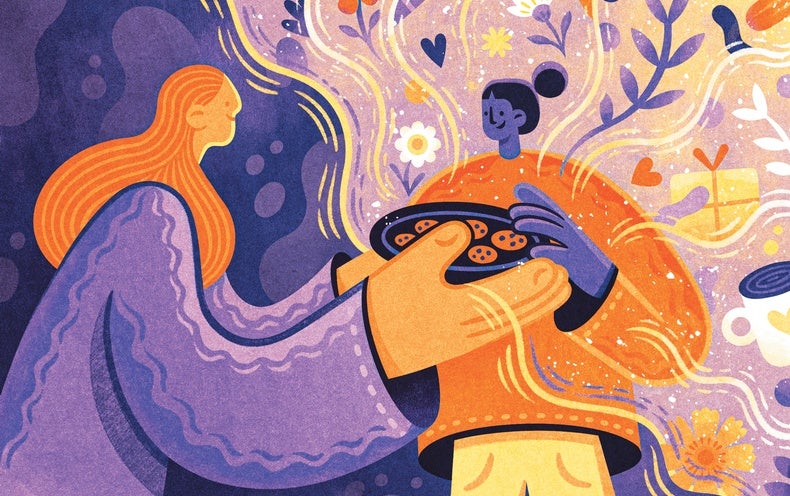Scientists who study happiness know that being kind to others can improve well-being. Acts as simple as buying a cup of coffee for someone can boost a person’s mood, for example. Everyday life affords many opportunities for such actions, yet people do not always take advantage of them.
In studies published online in the Journal of Experimental Psychology: General, Nicholas Epley, a behavioral scientist at the University of Chicago Booth School of Business, and I examined a possible explanation: people who perform random acts of kindness underestimate how much recipients value their behavior.
Across multiple experiments involving approximately 1,000 participants, people performed a random act of kindness—that is, an action done with the primary intention of making someone else (who isn’t expecting the gesture) feel good. Those who perform such actions expect nothing in return.
From one situation to the next, the specific acts of kindness varied. For instance, in one experiment, people wrote notes to friends and family “just because.” In another, they gave cupcakes away. Across these experiments, we asked both the person performing a kind act and the one receiving it to fill out questionnaires. We asked the person who had acted with kindness to report their own experience and predict their recipient’s response. We wanted to understand how valuable people perceived these acts to be, so both the performer and recipient had to rate how “big” the act seemed. In some cases, we also inquired about the actual or perceived cost in time, money or effort. In all cases, we compared the performer’s expectations of the recipient’s mood with the recipient’s actual experience.
Across our investigations, several robust patterns emerged. For one, both performers and recipients of the acts of kindness were in more positive moods than normal after these exchanges. For another, it was clear that performers undervalued their impact: recipients felt significantly better than the kind actors expected. The recipients also reliably rated these acts as “bigger” than the people performing them did.
We initially studied acts of kindness done for familiar people, such as friends, classmates or family. But we found that participants underestimated their positive impact on strangers as well. In one experiment, participants at an ice-skating rink in a public park gave away hot chocolate on a cold winter’s day. Again, the experience was more positive than the givers anticipated for the recipients, who were people who just happened to be nearby. Although the people giving out the hot chocolate saw the act as relatively inconsequential, it really mattered to the recipients.
Our research also revealed one reason that people may underestimate their action’s impact. When we asked one set of participants to estimate how much someone would like getting a cupcake simply for participating in a study, for example, their predictions were well calibrated with recipients’ reactions. But when people received cupcakes through a random act of kindness, the cupcake givers underestimated how positive their recipients would feel. Recipients of these unexpected actions tend to focus more on warmth than performers do.
Missing the importance of warmth may stand in the way of being kinder in daily life. People know that cupcakes can make folks feel good, to be sure, but it turns out that cupcakes given in kindness can make them feel surprisingly good. If people undervalue this effect, they might not bother to carry out these warm, prosocial behaviors.
And kindness can be contagious. In another experiment, we had people play an economic game that allowed us to examine what are sometimes called “pay it forward” effects. In this game, participants allocated money between themselves and a person whom they would never meet. People who had just been on the receiving end of a kind act gave substantially more to an anonymous person than those who had not. The person who performed the initial act did not recognize that their generosity would spill over in these downstream interactions.
These findings suggest that what might seem small when we are deciding whether or not to do something nice for someone else could matter a great deal to the person we do it for. Given that these warm gestures can enhance our own mood and brighten the day of another person, why not choose kindness when we can?
Are you a scientist who specializes in neuroscience, cognitive science or psychology? And have you read a recent peer-reviewed paper that you would like to write about for Mind Matters? Please send suggestions to Scientific American’s Mind Matters editor Daisy Yuhas at pitchmindmatters@gmail.com.
This is an opinion and analysis article, and the views expressed by the author or authors are not necessarily those of Scientific American.
































